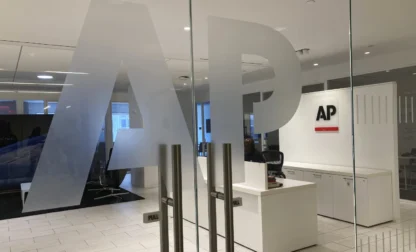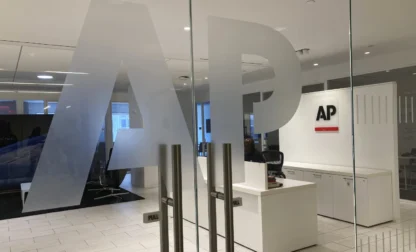HARRISBURG, Pa. - A Pennsylvania appeals court Tuesday sided with The Associated Press in a battle over public access to Gov. Tom Corbett's calendar entries and emails, saying his legal team failed to justify the redaction of certain information.
The seven-member Commonwealth Court panel unanimously upheld a ruling by the state Office of Open Records ruling that the governor’s office must turn over the requested records without redacting portions that it claimed are protected by exceptions to the state Right-to-Know Law.
The AP sought records covering an 18-day period shortly after Corbett took office in 2011. The governor’s office provided some records but blacked out 17 emails and 28 calendar entries, including the subject of scheduled meetings on grounds that the information could suggest the nature of private internal deliberations that are exempt from disclosure under the law.
The open-records officer for the governor’s office submitted an affidavit attesting that the redactions reflected “internal deliberations that preceded decisions related to subjects including the transition into the new administration, personnel, budgetary and policy decisions, related courses of actions and implementation of changes in the direction of the administration.”
The court panel said that, while calendar entries can be exempt, the affidavit was not specific enough to justify exempting the records from disclosure.
“It is not enough to include in the affidavit a list of subjects to which internal deliberations may have related. The affidavit must be specific enough to permit the OOR or this court to ascertain how disclosure of the entries would reflect the internal deliberations on those subjects,” Judge Renee Cohn Jubelirer wrote in the panel’s 15-page opinion.
Corbett’s office did not immediately respond to a request for comment on the ruling.
Pennsylvania lawmakers overhauled what had been one of the nation’s weakest open-records laws in 2008.
The changes that took effect in 2009 established a presumption that government records are public and required officials to justify why a record should be withheld rather than forcing requesters to establish why it should be made public. The law includes more than two dozen exceptions involving personal privacy, public safety and internal deliberations by public officials.
The panel did not rule on the issue of whether the open records office exceeded its authority by directing the governor’s office to provide unredacted copies of the governor’s calendars so they could be privately reviewed to determine whether they qualified for a Right-to-Know law exception. The governor’s office appealed, arguing the open records office was exceeding its authority.
In a separate opinion that concurred with other aspects of the ruling, Judge Patricia McCullough said the Right-to-Know Law gives the open records office authority to hold hearings, but not conduct private reviews.



